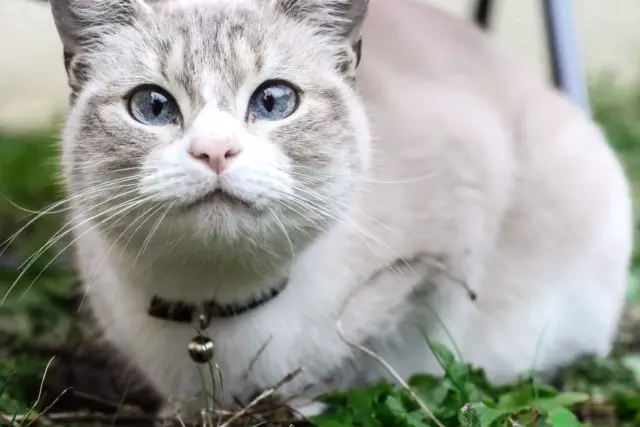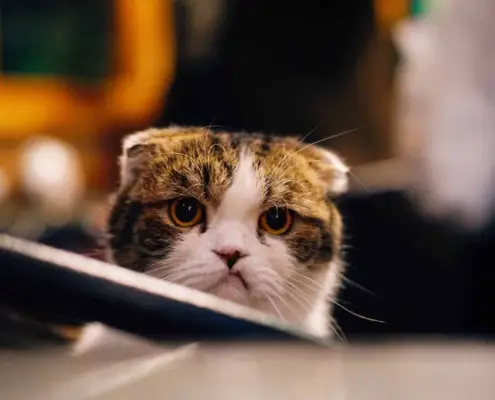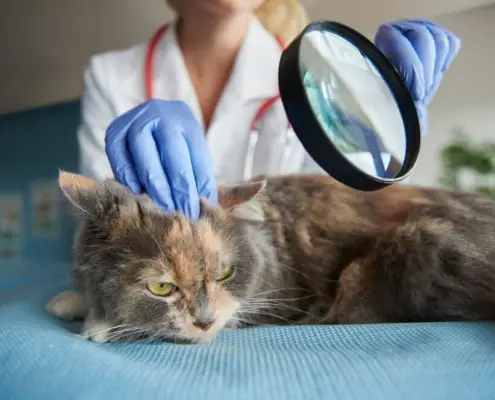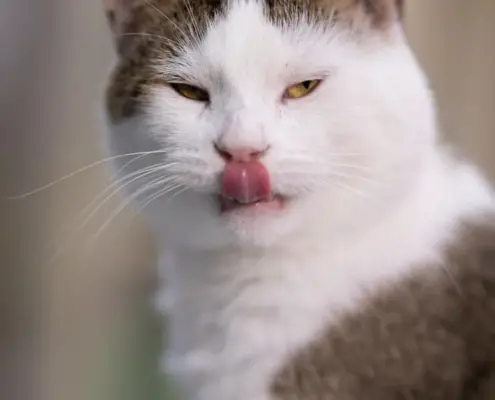
Cats are known for their independence and self-sufficiency, but when it comes to their dental health, they rely on their owners for proper care. Just like humans, cats can experience dental problems that can lead to pain, discomfort, and even serious health issues. It is important for cat owners to understand the dental needs of their feline companions and take appropriate measures to ensure their oral health.
Do cats get cavities?
One common question among cat owners is whether cats can get cavities. The surprising truth is that cats are not prone to cavities like humans are. This is because the composition of their teeth is different from ours. While human teeth have a hard outer layer called enamel, cat teeth lack this protective coating. Instead, their teeth are covered with a layer called cementum, which is less susceptible to decay.
However, this does not mean that cats are immune to dental problems. They can still develop various dental issues that require attention and treatment. These issues often arise from poor dental hygiene, improper diet, or genetic factors. It is crucial for cat owners to be aware of these problems and take proactive steps to prevent them.
Understanding feline dental problems
Although cats may not develop cavities, they are prone to other dental problems. One common issue is periodontal disease, which affects the tissues surrounding the teeth. When bacteria accumulate in the cat’s mouth, it can lead to inflammation, redness, and swelling of the gums. If left untreated, periodontal disease can cause tooth loss and even affect the overall health of the cat.
Another dental problem that cats can experience is tooth resorption. This condition occurs when the body begins to break down and absorb the structure of a tooth. It can be extremely painful for the cat and often requires extraction of the affected tooth. Tooth resorption is a relatively common condition in cats, and it is important for owners to be vigilant and seek veterinary care if they notice any signs or symptoms.
Common dental issues in cats
In addition to periodontal disease and tooth resorption, cats can also develop other dental issues such as gingivitis, stomatitis, and oral tumors. Gingivitis is the inflammation of the gums, which can be caused by plaque buildup or other factors. Stomatitis is a severe inflammation of the mouth, often resulting from an immune response to dental plaque. Oral tumors can also occur in cats, and they can be benign or malignant. These dental problems can cause pain, difficulty eating, and overall discomfort for the cat.
How to prevent dental problems in cats
Prevention is key when it comes to maintaining the dental health of cats. Here are some tips to help prevent dental problems in your feline friend:
- Regular brushing: Brush your cat’s teeth regularly using a toothbrush and toothpaste specifically designed for cats. Start slowly and gradually increase the brushing time. This will help remove plaque and prevent the buildup of tartar.
- Dental-friendly diet: Feed your cat a balanced diet that promotes good dental health. Avoid feeding them excessive amounts of soft food or treats that can stick to their teeth. Instead, opt for dry food or dental treats that help clean their teeth while they chew.
- Provide chew toys: Offering your cat appropriate chew toys can help keep their teeth clean and healthy. Chew toys not only provide mental stimulation but also help remove plaque and massage their gums.
- Regular dental check-ups: Schedule regular dental check-ups with your veterinarian. They can perform a thorough examination of your cat’s teeth and gums, and address any potential issues before they become serious.
Signs of dental problems in cats
It is important for cat owners to be aware of the signs and symptoms of dental problems in their feline companions. Some common signs that may indicate dental issues include:
- Bad breath: Persistent bad breath can be a sign of dental problems such as periodontal disease or tooth decay.
- Difficulty eating: If your cat is having trouble eating, it may be due to dental pain or discomfort. They may chew on one side of their mouth or avoid hard food altogether.
- Excessive drooling: Excessive drooling can be a sign of oral pain or inflammation.
- Swollen or bleeding gums: Redness, swelling, or bleeding of the gums can indicate gingivitis or other dental problems.
If you notice any of these signs in your cat, it is important to consult with your veterinarian for a proper diagnosis and treatment.
Treating dental problems in cats
If your cat is diagnosed with a dental problem, the treatment will depend on the specific issue they are facing. In some cases, professional dental cleaning under anesthesia may be necessary to remove tartar and plaque buildup. In more severe cases, tooth extraction may be required to alleviate pain and prevent further complications.
It is important to note that dental treatments for cats often require anesthesia due to the need for thorough cleaning and examination. This ensures the safety and comfort of the cat during the procedure. Your veterinarian will discuss the best course of action based on your cat’s individual needs and condition.
Dental care tips for cat owners
Apart from regular brushing and veterinary check-ups, there are additional steps cat owners can take to promote good dental health in their feline companions:
- Dental rinses or gels: Some dental rinses or gels can help reduce plaque and tartar buildup. Consult with your veterinarian to determine if these products are suitable for your cat.
- Water additives: Certain water additives can help maintain oral hygiene by reducing plaque and freshening breath. Again, it is important to consult with your veterinarian before using any products.
- Monitor their eating habits: Keep an eye on your cat’s eating habits and ensure they are able to chew their food properly. If you notice any changes in their eating behavior, it may indicate a dental issue.
- Regular playtime: Engaging your cat in regular playtime can help promote dental health. Activities such as chasing toys or playing with interactive puzzles can keep their teeth clean by stimulating saliva production and encouraging natural chewing.
The importance of regular veterinary check-ups
Regular veterinary check-ups are essential for the overall health and well-being of your cat, including their dental health. During these visits, your veterinarian will perform a comprehensive examination of your cat’s teeth and gums, identify any potential issues, and provide appropriate treatment or recommendations.
By staying proactive and addressing dental problems early on, you can help prevent further complications and ensure your cat’s comfort and happiness.
Conclusion
While cats may not be prone to cavities like humans, their dental health still requires attention and care. Understanding common dental issues in cats, recognizing the signs of oral problems, and taking preventive measures can help keep your feline friend’s teeth and gums healthy.
Remember to brush your cat’s teeth regularly, provide a dental-friendly diet, offer chew toys, and schedule regular veterinary check-ups. By prioritizing your cat’s dental health, you can contribute to their overall well-being and enjoy a long and happy life together.
Take the necessary steps to ensure your cat’s dental health by scheduling a veterinary check-up today. Your furry friend will thank you for it!
If you enjoyed my article, I would appreciate you sharing it with your network.

Sima Ndlebe
Sima writes for CatBuzz. He is interested in Cats, Health and Fitness, and Entrepreneurship.
Published: 16 November 2023
Related Articles
Disclaimer
The content found on CatBuzz.org is presented on an "as is" basis and is intended for general consumer information and education purposes only. Any utilization of this information is voluntary and solely at the user's own risk.
None of the articles or content should be regarded as, or used in place of, veterinary medical advice, diagnosis, or treatment. The information provided on the website is purely for educational and informational intentions and should not be considered a substitute for professional guidance from a veterinarian or other qualified expert. The articles are designed to inform consumers about veterinary healthcare and medical matters that may impact their cat's daily life. It should be noted that this website and its services do not constitute the practice of any form of veterinary medical advice, diagnosis, or treatment. CatBuzz.org explicitly disclaims any liability for any direct or indirect damages or losses that may arise from the use of or reliance on the information contained within the content.
Consumers must consult a veterinarian, veterinary specialist, or another qualified veterinary healthcare provider when seeking advice regarding their cat's health or medical conditions. It is important not to ignore, avoid, or postpone seeking medical advice from a veterinarian or other qualified veterinary healthcare provider solely based on information obtained from this website. If you believe that your cat may be experiencing a medical issue or condition, it is imperative to promptly contact a qualified veterinary healthcare professional.



